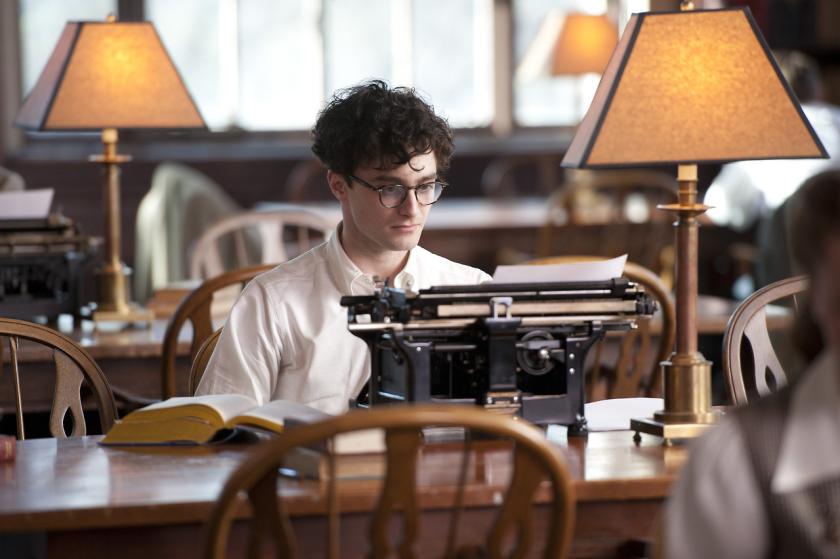Mighty oaks from little acorns grow – meet Allen Ginsberg, before the beard. Daniel Radcliffe plays an 18-year-old version of the infamous beat poet in the defining moments of the artist as a young man, and the true-life episode that created the genre.
A bespectacled, sheltered, bookish Jew, Ginsberg frees himself from the shackles of a mentally ill mother and dodges the shadow of a middle-class education provided for by his bourgeoisie poet father Louis Ginsberg, by heading off to Columbia University. There, he is intoxicated by the kicks of jazz, a plethora of drugs and the heady thrill of his infatuation with Lucien Carr (Dane DeHaan), who entices him by stating “You’re not anything... yet”. Cue much finding of the self through furious typewriter tapping, narcotics dabbling, rebellious yelling a-top library tables, frantic sexual forays and intense poetry churn.
While holding the true story of the murder of David Kammerer by Lucien Carr in 1944 in one of its tweed pockets, Kill Your Darlings is as much a coming-of-age for the beat genre as a coming-out of a young man. The film skirts around components of both Ginsberg’s body of work – mental illness, homosexuality, religion, drugs – and the generation from whence beat poetry sprung. The dark obsessions, sexual ramifications, political guilt as the war rages on, is interrogated, challenged and interpreted, with the malevolence of Kammerer’s murder playing second fiddle to the formation of a group of poets as they strive to become realists like Jack Kerouac, telling it from the trenches.
The film, vintage and theatrical, will please some literary buffs although not those looking for the facts of a history lesson. It’s told perhaps for students full of youthful idealism, who aspire to wearing polo-necks, getting wasted, quoting their smarts and being part of something big. The script reads like a poem itself in parts, with Ginsberg commenting “She tasted like imported sophistication and domestic cigarettes” and there are frequent references to Yates’ cyclical vision of life. It is the alluring Carr that ruptures the circle and thusly binds the four stalwarts of the era – Ginsberg, Kerouac and Burroughs.
 Director John Krokidas drives you down corridors of narrative from which you can peek into the detail of different places in the journey away from juvenile metaphysics. Ginsberg’s little hairy feet or his obsessive crime-scene-like wall of words, his lapse into drug induced paranoia (the music slows and then the scene becomes suddenly too clear) – are among the avenues explored in pursuit of becoming a real writer.
Director John Krokidas drives you down corridors of narrative from which you can peek into the detail of different places in the journey away from juvenile metaphysics. Ginsberg’s little hairy feet or his obsessive crime-scene-like wall of words, his lapse into drug induced paranoia (the music slows and then the scene becomes suddenly too clear) – are among the avenues explored in pursuit of becoming a real writer.
Radcliffe has bid Hogwarts adieu for good with this earnest and surprisingly convincing, astute portrayal, although he is sometimes too wide-eyed alongside DeHaan’s often satirical squinting. There are moments of condescension rather than the presumably aimed-for candour. But this is a film of contradictions. Carr, who is neither poet nor homosexual pushes the literary movement and encourages couplings, suicidal tendencies and literary theories, forcing others to liberate while denying or repressing his own truths – falling further into the fascinating anxieties and fixations of beat generation counterculture. His motto “First thought best thought” doesn’t ring true.
Kill Your Darlings is a story of the process of inspiration, told via the contextualizing of a famous murder as the lynchpin of both of the beat movement and the plot. Cliché’s abound but the succulent boogie-woogie score and liberate ideas are driving forces behind the scripted events, and they are essentially what allows the film to flourish into something outside of the norm.
Overleaf: watch the trailer to Kill Your Darlings















Add comment